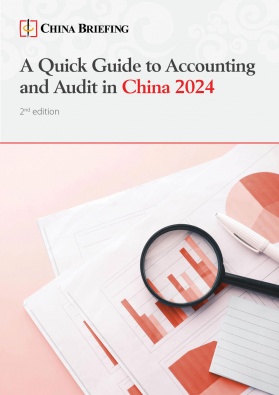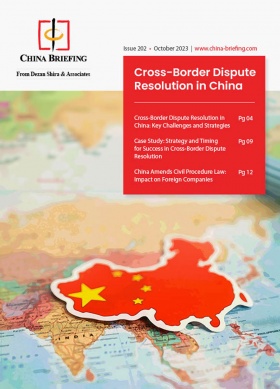Annual Filing of Stamp Tax on Business Account Books before January 15: FAQs
For taxpayers who choose to pay their stamp tax on business account books on a yearly basis, the annual filing is ongoing. If there is an increase in tax items such as “paid-in capital” and “capital reserve” in the 2023 business account books, the taxpayer is bound to complete the stamp tax declaration and payment before January 15. Where there is no increase, it is still necessary to declare zero stamp tax.
According to the Stamp Tax Law of The People’s Republic of China, for stamp tax that is levied quarterly or annually, taxpayers shall declare and pay tax within 15 days from the end of the quarter or year. Among others, the stamp tax on business account books is commonly subject to annual filing.
That is to say, the stamp tax on business account books for the year of 2023 should be declared and paid before January 15, 2024.
In this article, we discuss some frequently asked questions (FAQs) regarding the annual filing of stamp tax on business account books.
Q1. What kind of business account books are subject to stamp tax?
Based on the content, business account books can be divided into fund-record account books and other account books. Stamp tax should be declared and paid for the fund-record account books. Other account books are no longer subject to stamp tax since the new Stamp Tax Law came into effect on July 1, 2022.
Q2. How to determine the basis for calculation of stamp tax on business account books?
The stamp tax basis of a taxable business account books is the total amount of paid-in capital (share capital) and capital reserves recorded.
For business account books that have paid stamp tax, if the total amount of paid in capital (share capital) and capital reserves recorded increases compared to the total amount of paid in capital (share capital) and capital reserves that have already paid stamp tax, the tax payable shall be calculated based on the increased portion.
Taxpayers can check the beginning and the ending value of the paid-in capital and capital reserve for the last year. If there was an increase, stamp tax for the increased portion shall be declared and paid within the declaration period in January.
Q3. What is the stamp tax rate for the business account books?
The applicable tax rate for business account books is 0.025 percent of the total amount of paid-in capital (share capital) and capital reserves.
Q4. When should taxpayers declare the stamp tax?
The stamp tax on taxable business account books is levied on a yearly basis or based on each transaction. The declaration method cannot be changed within one tax year once selected.
If it is levied on a yearly basis, the taxpayer shall declare and pay stamp tax within 15 days after the end of year. If it is levied on each transaction, the taxpayer shall declare and pay stamp tax within 15 days after the date when the obligation to pay tax arises.
The tax system will check and verify if any late declaration occurs, which may affect entities’ tax credit rating.
Q5. Should the taxpayer make a declaration when there is no stamp tax payable?
Yes.
If the stamp tax on business account books is levied on a yearly basis, a zero declaration must still be made even if there is no tax payable. Otherwise, an overdue declaration record will be generated, and the tax credit and invoice purchasing of the entity will be affected.
Q6. Are there any tax incentives on stamp tax on business account books?
In general, private sector taxpayers can enjoy the following incentives on stamp tax:
- Small-scale taxpayers, small and low-profit enterprises (SLPEs), and self-employed individuals can enjoy a 50 percent reduction for stamp tax (excluding stamp tax on security transaction) during the period from January 1, 2023, to December 31, 2027 (MOF STA Announcement [2023] No.12).
- Banking financial institutions and financial asset management companies are exempt from stamp tax for offsetting debts with property for non-performing claims. From August 1, 2023 to December 31, 2027, the contracts, documents of title transfer, and business account books involved in the process of acceptance and disposal of debt-offsetting assets by banking financial institutions and financial asset management companies are exempted from stamp tax, and the stamp tax payable by other parties to the contracts and documents of title transfer shall be levied according to the regulations. (MOF STA Announcement [2023] No.35).
Key takeaway
Fulfilling the annual stamp tax filing requirement for business account books is a easily overlooked tax obligation. Businesses are advised to conduct self-checks and ensure timely declaration and payment.
Dezan Shira & Associates’ tax professionals have a deep understanding of Asia’s complex tax environments. Our experienced team of tax accountants, lawyers, and ex-tax officials can help on a wide spectrum of tax service areas across all major industries. If you need any assistance on bookkeeping and tax advisory supports for your China operations, please contact China@dezshira.com.
About Us
China Briefing is written and produced by Dezan Shira & Associates. The practice assists foreign investors into China and has done so since 1992 through offices in Beijing, Tianjin, Dalian, Qingdao, Shanghai, Hangzhou, Ningbo, Suzhou, Guangzhou, Dongguan, Zhongshan, Shenzhen, and Hong Kong. Please contact the firm for assistance in China at china@dezshira.com.
Dezan Shira & Associates has offices in Vietnam, Indonesia, Singapore, United States, Germany, Italy, India, Dubai (UAE), and Russia, in addition to our trade research facilities along the Belt & Road Initiative. We also have partner firms assisting foreign investors in The Philippines, Malaysia, Thailand, Bangladesh.
- Previous Article China’s 2024 Catalogue for Guiding Industry Restructuring
- Next Article Increasing and Decreasing Registered Capital in China – A Guide for FIEs [2024 Update]







